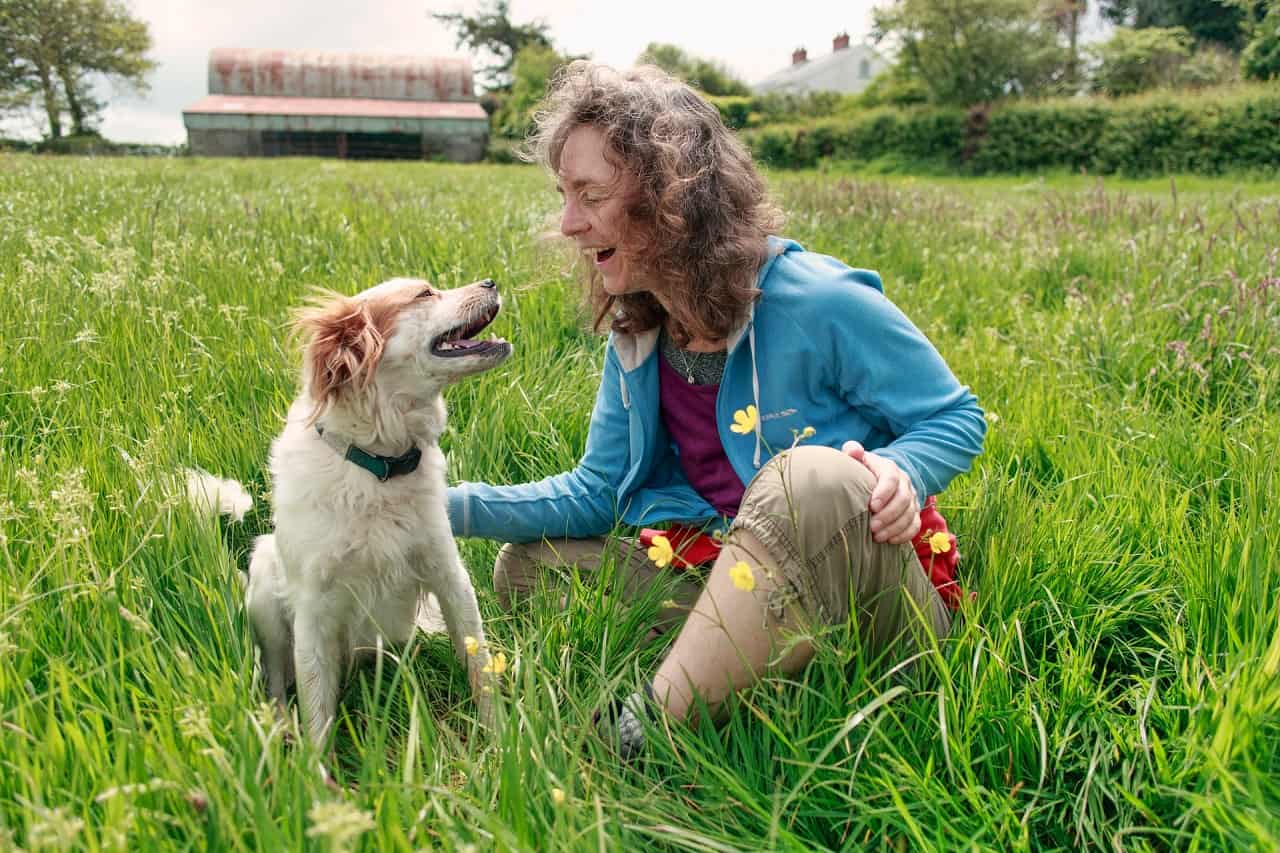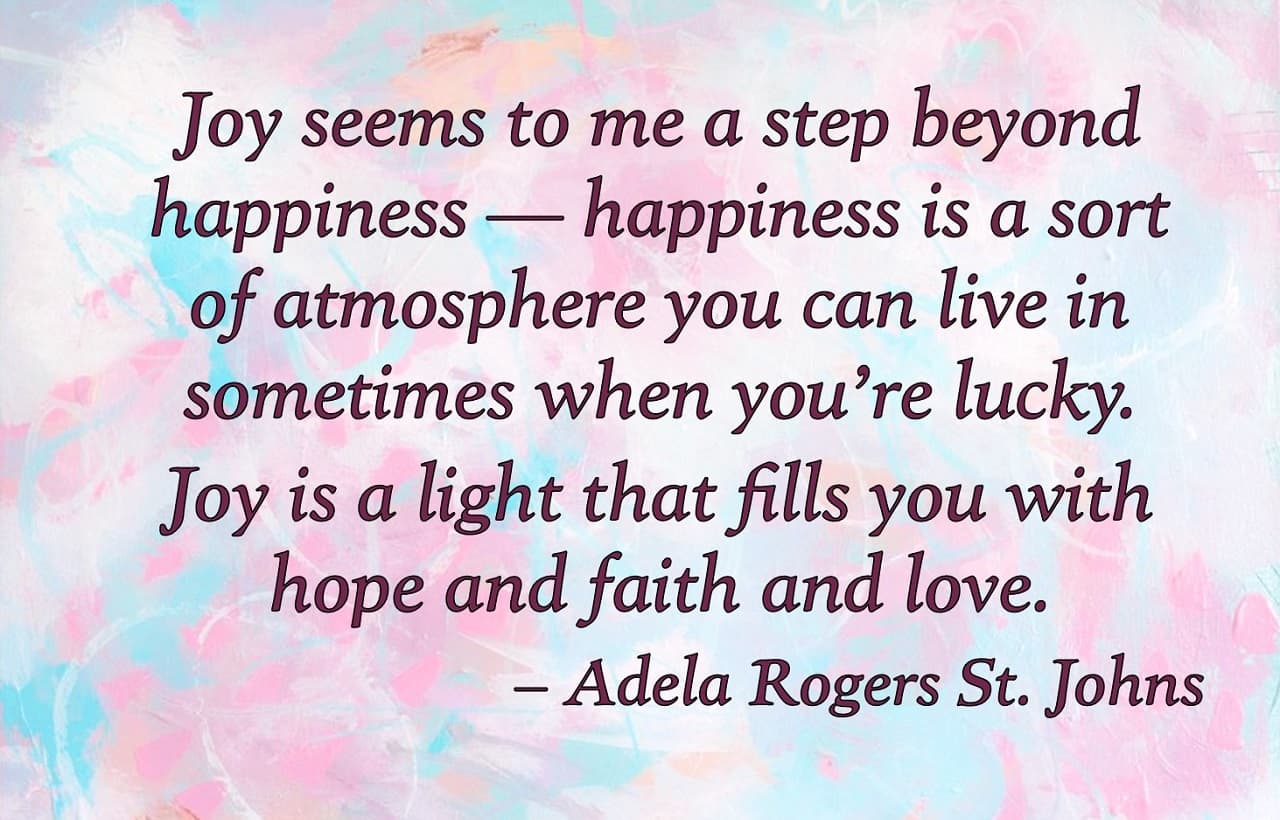
Joy Isn’t What a Lot of People Think It Is
I’ve been mulling the idea of joy ever since reading the article The Rachel Hollis Drama Is Why I Don’t Trust Influencers by Bertilla Niveda on Medium. I’m not familiar with Rachel Hollis, but apparently her famous motto is “Choose Joy.” Ms. Niveda’s case against Ms. Hollis is similar to one I would make against what is known as the Prosperity Gospel: If you’re unhappy/not rich enough, it’s your own fault/you don’t have enough faith — or in this case, joy.
But my real takeaway after thinking through the article, is that neither writer understands what joy really is. And I suspect this is a common problem as the word has become thrown around a great deal in the last decade or so. Let’s start with some of the things joy is not.
Joy is not a magic pill for success
People who tell you that you just need more joy in your life to be successful are charlatans. These are the same folks who will berate you for not having enough joy when things have gone bad. As if it’s all your fault. Replace the word joy with faith, and you have the Success Gospel fallacy. The joy fallacy is just another — more secular — version.
Joy is not material things
Most people are familiar with Marie Kondo’s method of decluttering: Ask if the item brings you a spark of joy. If it does, keep it. If it doesn’t, get rid of it. I understand what she is trying to explain here, but I wish she had used a different word than joy. Maybe you take delight in the beauty of an object. Perhaps the color of that dress make you want to smile. Or that vase from your grandmother sparks good memories. Those are all worthwhile. But they are not joy. I have met homeless people who lived with more joy than some of the rich people I’ve met. Joy and prosperity are not synonymous nor interdependent.
Joy is not a denial of bad things in our lives
The Bible tells us, “The rain falls on the just and the unjust.” Sure, actions have consequences. Sometimes those actions are our own, but often they are someone else’s — or acts of nature — and we happen to be collateral damage. Say a tornado destroys a neighborhood. One person is inconsolable. Another wipes his tears and says, “It’s all gone, but we have each other.” Guess who lives with joy in that case?
Joy does not excuse pain, injustice, or abuse
Those who quote Paul and say, “Rejoice in your suffering,” (Romans 5:3-5) to people in abusive relationships are some of the vilest people on earth. That is victim blaming and shaming, pure and simple. Paul was talking to Christians who were being persecuted for their faith, not for being women, or self-sufficient, or the wrong color, or not following the rules. Let me tell you a story that may help explain these last two points.
When I worked at a Christian youth hostel in Amsterdam in the 1970s, a black pastor who was exiled from South Africa came to stay with us. His face had many scars, both tribal and resulting from the many beatings he endured in and out of prison, yet he carried them with equanimity. Soft spoken, his face would light up when people would sit and talk to him. He disliked talking about his own harsh experiences but had no problem advocating for those who remained in prison and who were still subject to the atrocities of apartheid. It was months before his wife was allowed to leave and join him. He was comfortable in his skin but fought against the injustices that sent him into exile. He wasn’t bitter but worked hard to raise financial and political help for those who remained in South Africa. I couldn’t name it at the time, but in addition to his faith, he had joy. He was so much more genuine than the manager who told me to smile or people might think being a Christian was a bad thing.
Joy is not happiness
Happiness is often short-lived, with shallow roots and dependent on circumstances. A child is happy when they get the birthday present that they wanted. An adult can be happy when they get a raise at work. They can be unhappy just as quickly if the raise is denied or a sibling breaks the present. Joy is much, much deeper. Here’s another story to help explain this.
I never thought of myself as an unhappy child. I had a lot of fun and did a lot of fun things. But one thing I learned early on was to protect my emotions. I grew up in a chaotic household with emotions all over the map. But no one wanted a crybaby around. More than once I was told, “Quit crying or I’ll give you something to cry about.” It didn’t matter why I was crying, and I received a paddling more than once. As a result, I learned to stuff my emotions down. Oh, I could laugh and cheer with my friends and classmates, but I got the reputations for being serious about life. Even too serious. This began to bother me. I was perhaps twenty-three when I told my college advisor that I wanted to feel again. I had realized that I needed to be open to being hurt if I was to be open to feeling joy. I’d grown tired of being numb.
That was the beginning for me of learning what joy really is.

Joy is a choice — just not the choice some folks say it is
For people like me, who grew up with little joy, we have to choose to bring joy into our lives. For people who grew up knowing joy, the choice becomes whether or not to keep joy in their lives as hurts, disappointments, and heartaches inevitably come their way. You’re not a failure if you forget to choose joy. And choosing joy isn’t a guarantee that everything will go the way you want it. But it helps you to open your mind to all the possibilities in any situation instead of dwelling on just the negative. Joy is not about success in any way, shape, or form. It’s about how you choose to interact with the world.
Joy is an attitude
Every morning when I wake up, I decide what attitude I am going to face the day with. This can be conscious or unconscious. Usually, it takes me a couple cups of coffee to decide. And sometimes it changes throughout the day. But when I choose to face the day with joy, I find that even the tough moments are easier to take.
For example, dealing with telephone customer care is one of my least favorite things to do. Being reduced to tears and/or ranting on the phone are not unheard of. I swear they teach their call center staff how to push people’s buttons! But if I remind myself that I want to live with joy, it helps my perspective:
- My life will not cease to exist as a result of this call.
- They are not out to get me personally.
- The person I’m talking to is not the policy maker.
- We’ll find a way to work this out.
- I’ve even learned to be extra thankful and gracious with those who have been helpful and worked hard to help me, sometimes asking to speak to a supervisor to commend them.
Joy is worth the effort
When I make a conscious decision to live in joy, I find it easier to see the good things around me. The flowers, the uplifting story on the news, the house finches that have returned with the spring. And the negative things are less onerous. As we battle health issues in the family, I can be more pragmatic and less panic-prone to land on the worst-case scenarios. I’m more conscious of spending time being with my husband and my dog, even if we’re just sitting in the yard and doing nothing. No, it isn’t always easy. Sometimes joy can be a lot of work, a lot of reminding myself or journaling to get there. And a lot of letting go of my expectations. Paradoxically, when I make the effort to include joy in my life, I feel more in control and grounded.
If you aren’t even sure you know how joy feels, that’s OK. I’ve been there. Think of a piece of music that makes you feel so good that you want to dance. Or sing. Or cry because it feels good. A piece that always taps into my joy is the chorus from Beethoven’s 9th Symphony, Ode An de Freude/Ode to Joy. Whether or not you hear or understand the lyrics from the poem by Friedrich Schilling doesn’t matter. You may be more familiar with the music as the Hymn of Joy or Joyful, Joyful We Adore Thee, set to the same music and considered to be the most joyous Christian hymn. I defy anyone to listen to this version from the movie Sister Act 2 and remain still!
Perhaps you have a memory (I first had to go back to age 2) where you had no cares; you laughed and jumped around for no special reason other than you were alive. Remember that feeling? Sit with that memory and think how it would feel like that today. Watch the toddlers playing at a park. Or note their first encounter with a ladybug or butterfly. Do you sense the wonder and abandon with which they play and discover? There may be something or someone in your life right now that leads you to joy. Good!
There may also be things or people that deny or steal that sense from you. Are you open to rearranging how you look at them? How might you adjust their place in your life so you can nurture the joy?
My favorite definition of joy comes from a quote by Adela Rogers St. Johns:

For me, joy doesn’t stand alone, but is one of the foundation stones in my life along with grace, love, and peace. As these stones buttress one another, I become stronger in my faith in God and in myself as a child of God.
Grace, Peace, and Joy to You!